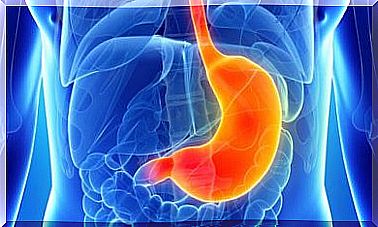Flu Or Cold?
Whether you have the flu or a cold is easy to distinguish, but is often confused or used synonymously.

There is a big difference between having the flu and the common cold. Therefore, you should adapt your language usage accordingly and name your complaints correctly when you speak about them. We explain the differences to you!
There is a big difference between flu and cold!
It is actually easy to distinguish whether your symptoms are flu or cold, but colloquially a cold is often equated with “flu”. Learn to tell if you have the flu or a cold!
You should also be able to differentiate between the flu and the common cold with regard to possible consequences such as inability to work or treatment measures, because if you have the flu, you should stay in bed so as not to worsen the illness.

What medications help with the flu or cold?
Flu or cold, both are caused by viruses. So the biggest and most important thing they have in common is that they cannot be cured with antibiotics.
You can only relieve symptoms with medication, but not cure the condition with antibiotics. Never use antibiotics if you have the flu or a cold!
Common to both diseases is that the airways are affected, the nose is blocked and dripping, and you may have a sore throat, hoarseness, or cough. The following medications and home remedies can help:
- Decongestant nasal drops
- Inhale
- honey
- ginger tea
- Cough Syrup
Painkillers help against headaches, but you should first try to get them under control by drinking a lot in order to help your body cope better with the infection by increasing fluid intake.
The following criteria will tell you whether you have the flu or a cold:
The flu comes suddenly
A cold sneaks up by starting with a few symptoms, which then interact with the classic characteristics of a cold: runny nose, stuffy nose, sneezing, coughing, sore throat, hoarseness, …
Not all symptoms have to appear with every cold, only characteristic is the creeping course of the disease. The flu starts suddenly and literally lays you flat in a matter of hours.

Body temperature with flu or cold
If you have a cold, your body temperature may rise slightly. One speaks then not of fever, but of increased temperature. But a cold can also happen without changing body temperature.
Real flu is always accompanied by a fever. One speaks of fever when the body temperature rises above 38 ° C. The flu can lead to a very high fever, which you may even want to lower. Discuss the appropriate measures with your doctor.
The fever is accompanied by chills and sweats. This only happens with the flu, not with a cold or a runny nose.
Body aches
In the case of the flu, the general cold symptoms are accompanied by aching limbs. It feels a little bit like you’ve got sore muscles all over your body.
In the case of a cold, the body aches and pains are completely absent. Nevertheless, you should avoid strenuous exercise even if you have a cold.

a headache
If you have a sharp, boring headache, it is a symptom of the flu. A light, dull headache suggests a cold. Some describe the headache of the flu as “light and sharp” and that of the common cold as “dark and dull”.

to cough
The type of coughing can also give you an indication of whether it is flu or a cold.
If the cough is only mildly stimulating and produces phlegm, it is only a symptom of a cold.
If the urge to cough is strong, painful and dry, so you are not coughing up phlegm, you can rather assume that you have “caught” the flu.
Sore throat
As long as you only have a cold, your throat scratches and you get hoarse. Unless the tonsils or polyps are inflamed, you can assume you have the flu if the sore throat is so severe that you have difficulty swallowing and every bite is sore.

Weeks of tiredness
It’s normal to feel defeated even if you have a cold. But with the flu you feel completely weak, you still have a feeling of exhaustion for weeks afterwards, you are extremely tired and fight against circulatory problems. Loss of appetite can also persist after the illness.
Duration and course
With a cold, you can feel the symptoms change and improve. After a week there are only mild symptoms. With the flu, however, you won’t feel much change or improvement over the course of the week and you may be really sick for up to 14 days.









